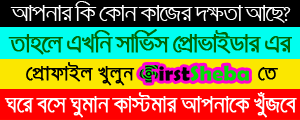A deepfake video of popular actress Rashmika Mandanna has gone viral on social media, causing outrage and concern among her fans and the public. The video, which was reposted by veteran actor Amitabh Bachchan, shows a woman entering a lift, but her face has been digitally altered to look like Mandanna’s. Bachchan called for legal action against the creators of the video, saying “Yes this is a strong case for legal.”
The original video belongs to Zara Patel, a British-Indian social media influencer, who posted it on October 9. The deepfake video is so realistic that it is hard to tell the difference between Patel and Mandanna unless one pays close attention to the moment when the woman’s face changes in the lift.
Mandanna, who is currently working on the film ‘Goodbye’ with Bachchan, has not commented on the video yet.
The video has sparked a lot of reactions from internet users, who expressed their shock and dismay at the misuse of technology and the potential harm it can cause to celebrities and the public.
“Ok this is terrifying,” wrote one user.
“It’s crazy how real this video looks!” said another.
A third user added, “It’s extremely worrying how unreliable online information is getting.”
Some users also pointed out the need for proper regulation and criminalization of such deepfake videos, which can violate the personality rights and privacy of the content creators and actors.
“This is horrifying for content creators and actors whose personality rights and even content/videos are in the public sphere. The worst part is that the current setup is not even strong enough to criminalize people who attempt such deepfake videos. We need proper regulation,” commented one user.
Another user said, “High-quality deep fake, very disturbing. I think the powerful will use it to their advantage and the ordinary person will suffer. Enough to destroy anyone.”
Deepfake videos are created using artificial intelligence and machine learning, which can manipulate and replace the faces and voices of people in existing videos. They can be used for entertainment, satire, or education purposes, but they can also be used for malicious and harmful purposes, such as spreading misinformation, defaming, blackmailing, or impersonating someone.
📢 Promoted post: বাংলায় আর্টিকেল লেখালেখি করে ইনকাম করতে চান?








